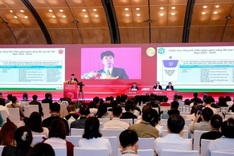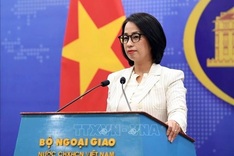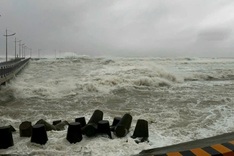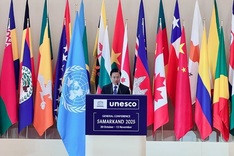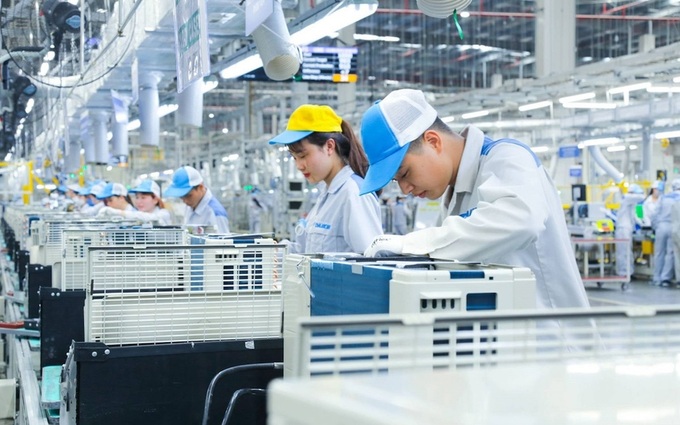
Illustrative photo.
HSBC experts assessed that amid news rumblings regarding both domestic and international measures intended to channel foreign direct investment (FDI) into the country, they take a step back to evaluate the current state of play.The nation has sustainably enjoyed FDI inflows well above 4% of its GDP, being among the highest in ASEAN. Competitive costs coupled with a favourable investment climate play a key role in drawing foreign firms, especially manufacturers who come to set up factories in and export goods from the Vietnamese market.
According to details provided by think tanks, some of the advantages that Vietnam has touted may now be challenged by other players which are part of the global value chain (GVC), with its manufacturing ecosystem needing to evolve to the next stage in order to address these challenges.
This therefore requires taking proactive steps aimed at upskilling in technical fields and improving existing infrastructure in a bid to facilitate and accommodate additional FDI inflows.
In fact, the surge taking place in multinational corporations’ (MNC) interests in the country stems from a variety of factors, including competitive costs and FDI-friendly policies. When comparing labour costs across Asia, manufacturing wages in the country tend to be lower than those in mainland China and in other regional peers.
Furthermore, the nation has made significant progress in terms of setting up various economic agreements with major trading partners, such as the EU-Vietnam FTA (EVFTA) and the Comprehensive and Progressive Agreement for Trans-Pacific Partnership (CPTPP).
In turn, these developments have facilitated and enabled greater foreign investment, with Vietnam increasingly seen as being open to FDI.
Part of the favourable investment environment can be explained by proactive support provided by the Government via the tax system. Vietnam therefore has a competitive position relative to its peers with a 20% statutory corporate income tax rate.
In addition, some firms have been able to use lengthy tax breaks and holidays in order to reduce the effective rate further.
Economists analysed that factors beyond tax considerations, such as the overall quality of infrastructure, will also need to be proactively addressed as the Global Minimum Tax is implemented across jurisdictions.
Measures such as further leveraging digitalisation to streamline trade processes, securing reliable and green energy, and facilitating goods transport through better infrastructure, are all factors which are likely to impact MNCs’ investment decisions over the coming years.
With price pressures relatively contained and the domestic sector requiring more time to firm up, experts expect the State Bank of Vietnam (SBV) to remain accommodative and keep its policy rate steady through the forecast horizon at 4.50%.
This will likely help the nation to achieve its growth target for the year, which is anticipated to be the fastest within ASEAN at 6.5%.

